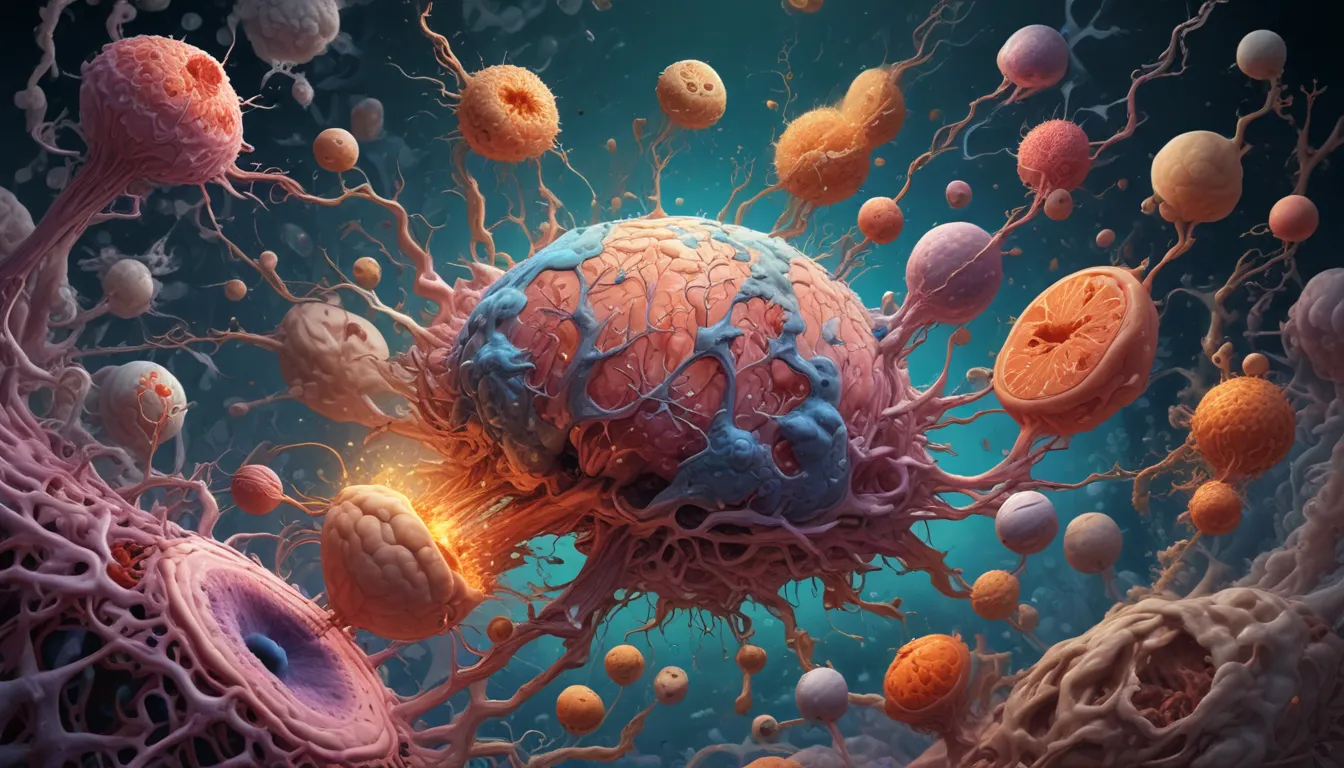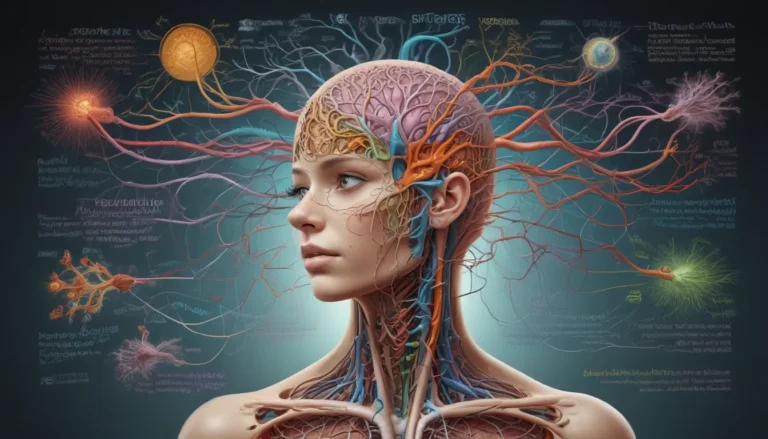A Note About Images: The images used in our articles are for illustration purposes only and may not exactly match the content. They are meant to engage readers, but the text should be relied upon for accurate information.
Apoptosis, also known as programmed cell death, is a captivating biological process that plays a crucial role in maintaining the health and functionality of our bodies. In simple terms, apoptosis is the mechanism by which cells self-destruct when they are no longer needed or when they become damaged or infected. While it may sound counterintuitive, apoptosis is an essential process that helps keep our bodies in balance. In this article, we will delve into the fascinating world of apoptosis and explore its significance and complexities. Let’s embark on a journey to unravel the mysteries of apoptosis and discover its key facets.
The Intriguing World of Apoptosis
Apoptosis, or programmed cell death, is a fundamental process that enables the body to eliminate unwanted or damaged cells. This highly regulated mechanism plays a crucial role in development, tissue homeostasis, and the immune response. It is a natural process in the body that helps maintain the balance between cell growth and cell death, preventing the accumulation of harmful cells and contributing to overall health.
The Natural Process of Apoptosis
Every day, apoptosis occurs naturally in our bodies, ensuring that the balance between cell growth and cell death is maintained. Without apoptosis, cells that are no longer needed or are potentially harmful would accumulate, leading to various diseases. Understanding the basics of apoptosis can shed light on its importance in ensuring the proper functioning of our bodies.
- Apoptosis eliminates damaged or unnecessary cells in a controlled and regulated manner, allowing for proper development and tissue maintenance.
- Factors such as DNA damage, cellular stress, viral infection, and toxic substances can trigger apoptosis, activating specific signaling pathways within cells.
The Role of Apoptosis in Development and Disease
Apoptosis in Embryonic Development
During embryonic development, apoptosis is crucial for shaping organs and tissues. It helps eliminate excess cells, reshape structures, and form precise connections between cells. This process ensures the proper formation and functioning of various body systems.
Apoptosis in Tissue Homeostasis
Throughout life, apoptosis plays a vital role in maintaining tissue homeostasis. It helps eliminate old and damaged cells, allowing new cells to take their place. This continual turnover of cells ensures the proper functioning of tissues and organs.
Apoptosis in the Immune System
The immune system relies on apoptosis to eliminate infected or potentially harmful cells. When a cell becomes infected with a virus or undergoes abnormal changes, it can activate the immune response, leading to apoptosis of the affected cell.
Apoptosis in Cancer and Neurodegenerative Diseases
Apoptosis plays a critical role in preventing the development of cancer by eliminating potentially cancerous cells. Dysfunction in the apoptotic pathway can contribute to the development and progression of cancer. Similarly, in neurodegenerative diseases, apoptosis helps clear abnormal proteins in the brain, and its dysregulation can lead to disease development.
Apoptosis in Autoimmune Disorders
In autoimmune disorders, apoptosis helps regulate the immune response by eliminating autoreactive lymphocytes and maintaining self-tolerance. Dysregulation of apoptosis can contribute to the development of autoimmune diseases.
Exploring Therapeutic Applications of Apoptosis
Researchers are exploring the therapeutic potential of manipulating apoptosis for the treatment of various diseases. Modulating apoptotic pathways can offer promising strategies for cancer therapy, autoimmune disorders, and neurodegenerative diseases. Understanding the intricate details of apoptosis has opened doors for potential therapeutic interventions in various diseases.
The Future of Apoptosis Research
Scientists continue to unravel the complexities of apoptosis, seeking to understand its mechanisms and potential applications further. Advancements in apoptosis research could lead to innovative therapies and interventions for a wide range of medical conditions. As we delve deeper into the realm of apoptosis, we may uncover even more fascinating facts about its intricate mechanisms and potential applications in medicine.
In conclusion, apoptosis is a captivating process that plays a crucial role in maintaining the balance of life. It is a highly regulated mechanism that eliminates damaged or unnecessary cells, allowing for proper development, tissue homeostasis, and immune response. The study of apoptosis continues to shape our understanding of cellular biology and holds great promise for future therapeutic advancements. By unraveling the mysteries of apoptosis, researchers and medical professionals can continue to develop new treatments and improve patient outcomes.
FAQs about Apoptosis
Q: What is apoptosis?
A: Apoptosis is a process of programmed cell death that eliminates damaged or unnecessary cells in a controlled and regulated manner.
Q: What is the significance of apoptosis?
A: Apoptosis plays a crucial role in maintaining tissue homeostasis, proper development, and immune response. It acts as a natural mechanism to remove unwanted or potentially harmful cells from the body.
Q: How is apoptosis regulated?
A: Apoptosis is regulated through a complex network of signaling pathways and the activation of specific proteins that initiate and execute the process of cell death.
Q: Can apoptosis be inhibited or induced?
A: Yes, apoptosis can be inhibited or induced depending on the cellular circumstances. In some situations, inhibiting apoptosis may be beneficial for cell survival, while in other cases, inducing apoptosis may be required to eliminate cancer cells or infected cells.
Q: What happens during apoptosis?
A: During apoptosis, a series of events occur, including cell shrinkage, chromatin condensation, DNA fragmentation, and the controlled dismantling of the cell, resulting in the formation of apoptotic bodies that are efficiently cleared by neighboring cells or phagocytes.
Embark on this journey into the captivating world of apoptosis, where each discovery brings us closer to unraveling the intricacies of cellular life and death. Let’s continue to explore, learn, and uncover the fascinating facts that shape our understanding of this essential biological process.






